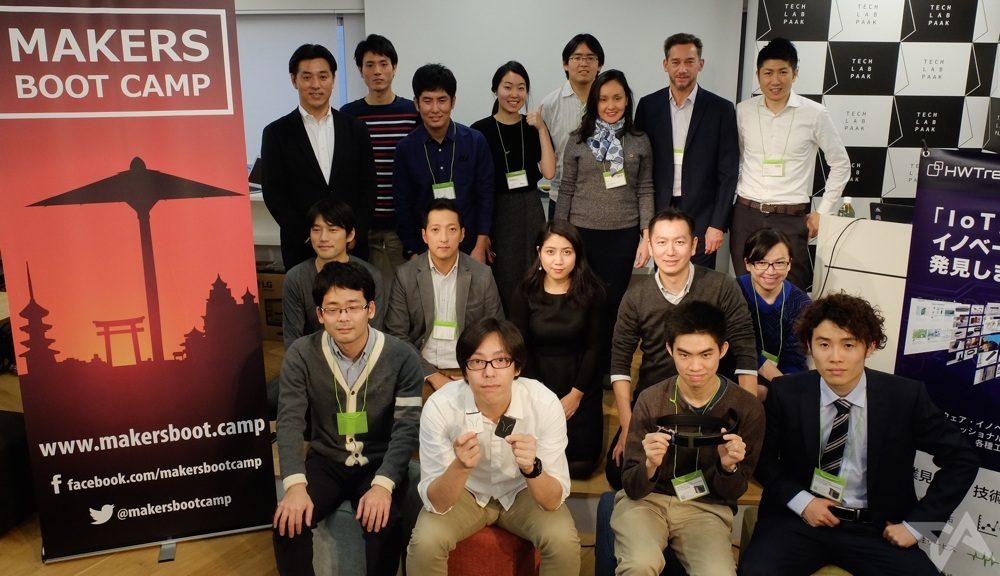Category: Press
An application to browse apps, AppBrowzer secures US$500K led by Deepak Gurnani
Bangalore-based Roid Technologies Pvt Ltd, which operates instant mobile app store AppBrowzer, has raised US$500K led by Deepak Gurnani, a member of Singapore Angel Network with participation from a group of angel investors.
Deepak Gurnani is a distributor and producer of Indian movies and has invested in more than 50 companies across the globe, holding stocks in Singtel and HSBC. This round of investment in AppBrowzer is his first investment in India.
Founded in 2015 by Sunny Gurnami and Venkatesh Rao, AppBrowzer is an application that allows users to search, discover and use various apps without any download or installation. This helps users in saving storage space on their mobile devices and data costs used for the installation and update of apps.
Last month, the company had a soft launch of its business-to-consumer (B2C) offering, that is a marketplace of mobile applications housing over 150 popular apps from various segments, including shopping apps Flipkart and Amazon, news apps CNN and TechCrunch, as well as education app Khan Academy where users can instantly access any of these apps without installation.
The startup also plans to launch its business-to-business (B2B) platform soon where developers and businesses can build and host their own instant apps. In this platform, the process of making apps is made easier whereby a developer can build an instant app in less than a day or two.
“We are looking to achieve at least 25,000 downloads before launching our B2B platform,” the co-founder and chief executive of AppBrowzer, Sunny Gurnani said. “We have also taken and merged the best bits of the web and native app technologies to create this platform. When a developer builds an app, it’s a web app but it gives a native experience to the users.”
The company also claims that the soon-to-be-launched B2B platform will be its main monetisation window, although the B2C platform would also contribute to a smaller portion of its revenues, primarily from advertisements and sponsored apps.
AppBrowzer competes with Tapzo, which was earlier known as Helpchat, a personal assistant platform. While Tapzo ties up with companies like Uber, Ola, Freecharge, Zomato and Swiggy to integrate their APIs to build apps within the platform, AppBrowzer keeps the builder platform open for developers and businesses to build and host their apps on the platform.
“A significant amount of the capital will be invested in building and launching the product, as well as the for talent acquisition. We haven’t done any marketing so far. Now, the focus will be on expanding the team and marketing the product to initiate good traction,” Sunny adds.
By Vivian Foo, Next Unicorn
Japan’s sports entertainment startup Ookami raises Series A from IMJ Investment, GREE Ventures, others
Sports startup company Ookami, the company behind sports entertainment application Player! made an announcement that it has secured an undisclosed Series A funding from IMJ Investment Partners, GREE Ventures, Asahi Shimbun, and other individual investors, alongside the release of an updated Player! which comes in line with the opening of the J-league and B-league.
The updated version of Player! will feature the real-time coverage of the upcoming 1040 games in the J-league (football) as well as the complete 1090 games in the B-league (basketball), in addition to news function, live chat function, and relative information.
Launched in September 2014, sports entertainment app Player! is an application providing a third viewing portal to sports, acting as an alternate to viewing live at the stadium or in front of the TV.
The application functions as a newsreader, providing users access to browse news sites of sports-genre as well as sports game information in real-time. Additionally, users can also communicate with other users who share the same interests.
The beginnings of Player! according to Ookami’s representative director Ogata Tai, however started out from a different service concept, originally centered on ‘news x community’ where users can make commenting statements on sports news. However, this was soon contended by the influence of Yahoo! news, a leading giant in sports news and community at large, and the idea could not be extended further.
The idea was later changed to a ‘live x community’ concept whereby sports league content and communication is centered, an idea that Player! is now based on.
“As I manage the service, I gradually come to understand that there is a need for live viewing. And so far, live viewing meant that we had to go to the stadium or to watch it on television,” Ogata explained. “But with the smartphone, we could communicate with each other in addition to watching. With this, we could build a new style of watching live, next to the stadium and television.”
Furthermore, with the alliance formed between Asahi Shimbun and Ookami, both companies could extend their sports content coverage whereby Player! can feature Asahi Shimbun’s reporting of 180 sports events annually. This includes the Koshien (Summer National High School Baseball Tournament) and Ekiden (All Nippon Ekiden Relay School Championship Tournament), etc.
Meanwhile, the Asahi Shimbun can reach more readers via a layout different from its usual news reporting which will help both companies gain an edge up in addition to this business capital tie-up.
Ookami plans to use the latest capital to accelerate the development of new functions and strengthening their service management processes for growth, in addition to facilitating the recruitment and training of engineers and designers.
With Japan being the host for the 2020 Olympic games, Ookami’s investment partner IMJ said, “The sports industry is expected to be one of the nation’s growing industry. But among the players in the industry, Player! Is a new media that realizes sports live contents and smartphone optimal customer experience. We also have great faith in the executive strength of the management team which is the reason for our support.”
By Vivian Foo, Unicorn Media
Darma Tech Labs, operator behind Makers Boot Camp accelerator to launch US$17.5 million investment fund with Kyoto Bank
Darma Tech Labs, the Kyoto-based operator behind the Makers Boot Camp (MBC) hardware startup-focused accelerator, announced on Tuesday that it is forming an investment fund worth 2 billion yen (about US$18 million) with Kyoto Bank as an anchor limited partner.
The fund is known as MBC Shisaku No. 1 Investment LP and its redemption period extends through a period of 10 years. The fund will mainly support the trial production and investment of domestic and international IoT startups as they did in the accelerator program Makers Boot Camp which has supported the trial production of IoT startup Monozukuri.
Additionally, the fund will intensively invest in early stage hardware startups in Japan, North America, and Europe. While looking at priority investment areas including IoT, robotics, sensing, networking, big data analysis, medical devices, nursing care, lifestyle, environment, and energy.
The Makers Boot Camp, previously being initiated in August 2015 by Darma Tech Labs in cooperation with Shimogyoku-based Kyoto Prototype Net has previously aided the prototyping efforts in more than 10 startups including wearable AI Bonbouton, smart digital window Atmoph, and e-money reader Coban, among some.
Along with the formation of this fund, Mikuni Kimura, the former chief investment officer for Future Venture Capital and the certified public accountant, Manabu Kuwahara will participate as managing directors at Darma Tech Labs.
At the same time, the company will also expand their alliance partnership with New York-based FabFoundry, in addition to appointing CEO Nobuhiro Seki as a director of Darma Tech Labs, in order to prepare for investments in startups which are centered on the East coast of New York, Boston, Pittsburgh etc.
Ultimately, this fund will also serve as a further investment to strengthen and accelerate the growth of Kyoto as a manufacturing city of IoT.
By Vivian Foo, Unicorn Media
Philippine-based marketplace PackingDelicious to raise seed fund from Tagcash
PackingDelicious, a Philippine-based marketplace website and delivery logistics service offering specialty products, has recently raised an undisclosed amount of seed funding from local fintech firm Tagcash Ltd.
With this investment, Tagcash founder and angel investor Mark Vernon will acquire an equity position of 25 percent at PackingDelicious.
Previously having provided a seed funding in iWantSeats, a bus booking startup in 2016, Vernon notes that he is interested in investing startups which will spread the use of his micropayment platform – Tagcash that will enable online, offline, and SNS payments using a digital wallet.
Established in December 2015, PackingDelicious was founded by present CEO Ramon Dolor III, having been inspired by his previous experience running the former operations of Foodpanda Philippines, as well as being the logistics and customer service supervisor at Lazada Philippines.
“The idea came to fruiting based on wanting to provide a much needed healthier alternative without directly competing with large name companies and the lack of reach of healthy products to the regular consumers. The site was then built but with a challenge of introducing the healthy alternative to Filipinos,” Dolor explained
Looking at PackingDelicious, its business is based on similar fields of marketing and logistics, being a web platform for pre-packaged food. This includes ready-to-eat canned, bottled or frozen goods and health products, ranging from unique local and artisan food retailers.
A variety of food is available on its platform, some of which include ready-made dishes like Garlic Chicken and Ribs Binagoongan from Commissary Kitchen as well as bottled gourmets including the Super Tuyo Fillet which is a dried herring in a garlic-based sauce.
At present, PackingDelicious is in its first quarter with 10,000 likes and followers on both Facebook and Twitter. The company has been doubling in sales each quarter. “We are within our target for sales at least for the beginning of this quarter,” Dolor said.
This investment round comes as the first round of seed funding for the company in which it plans to use the proceeds for marketing strategies.
By Vivian Foo, Unicorn Media
Baidu said to make US$100 million investment in Chinese electric car startup NextEV
Chinese Internet firm Baidu Inc. reportedly plans to invest US$100 million in smart electric vehicle technology maker NextEV as part of a Series C funding. Details of the deal have not been made public.
Baidu is now betting big on artificial intelligence to spur its future development. As the alliance is an effort intended to boost Baidu’s faltering autonomous driving business that has been witnessing falling profits.
Previously, the internet giant has set up an Institute of Deep learning in 2013, marking the beginnings of its research and development on unmanned driving technology.
However, Baidu has failed to yield concrete results despite its tie-ups with car makers such as BMW and Chery Automobile over the past three years. The exit of its core team members including senior vice president Wang Jin, who was in charge of the autonomous car division, worsened the already muddy prospects.
As the first company tapping into unmanned vehicles in China, Baidu claims that it has no intention to build cars but instead will focus on unmanned driving technology-related software, providing sensor modules and self-driving car brain to its partners. The collaboration with NextEV is in line with such strategy.
It recently established a business unit to focus on self-driving technology and appointed its newly hired chief operation officer Lu Qi as the head of the unit, signaling the importance Baidu is placing on the sector.
Founded in 2014 by Chinese automobile web portal Bitauto’s chairman William Li, NextEV is committed to the research, development, and production of high-performance electric sports cars. The Shanghai-headquartered company has offices in Europe and the United States, with more than 2,500 employees around the world. Last year, it launched the first electric car – the NIO EP9 in London.
The super racing car EP9 was said to be the world’s fastest electric car and the company plans to produce only six vehicles for some of the company’s early backers, including company founder Li, Tencent founder Pony Ma, Xiaomi founder Lei Jun, JD.com founder Liu Qiangdong and two others.
Prior to this, the electric vehicle startup has raised more than US$600 million via three funding rounds since June 2015, having backed by top global investors including Singapore’s Temasek Holdings, private equity giant TPG, China’s Lenovo Group and Sequoia Capital among some.
Following this tie-up with Baidu, NextEV would be able to utilize Baidu’s autonomous driving technology in its mass market electric vehicles. In the near future, the startup plans to launch a mass market electric vehicle priced at about half of Tesla’s Model S, which will start it at RMB620,000 (about US$90,000) in China.
As electric vehicles and unmanned driving technologies have been changing industry rules and profit distribution patterns in the automobile manufacturing sector, an increasing number of startups are joining the commercially viable market said to worth US$87 billion by 2030, according to research and advisory firm Lux Research.
By Vivian Foo, Next Unicorn





